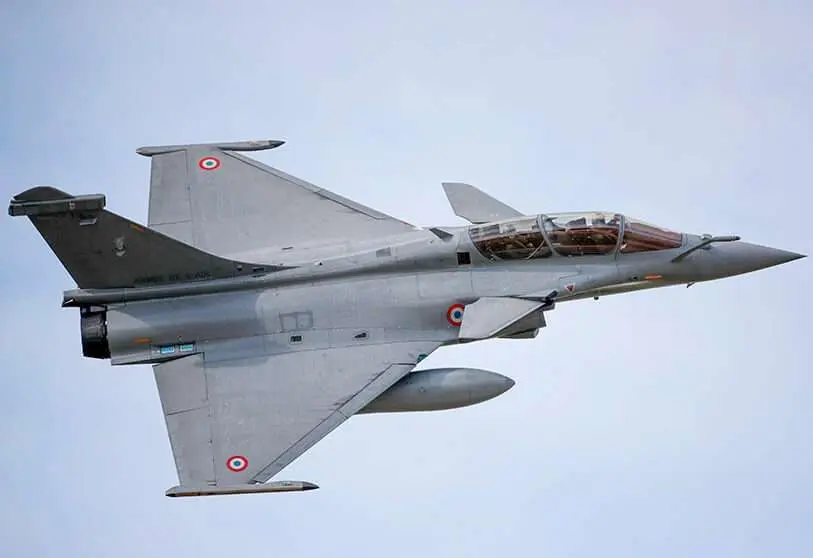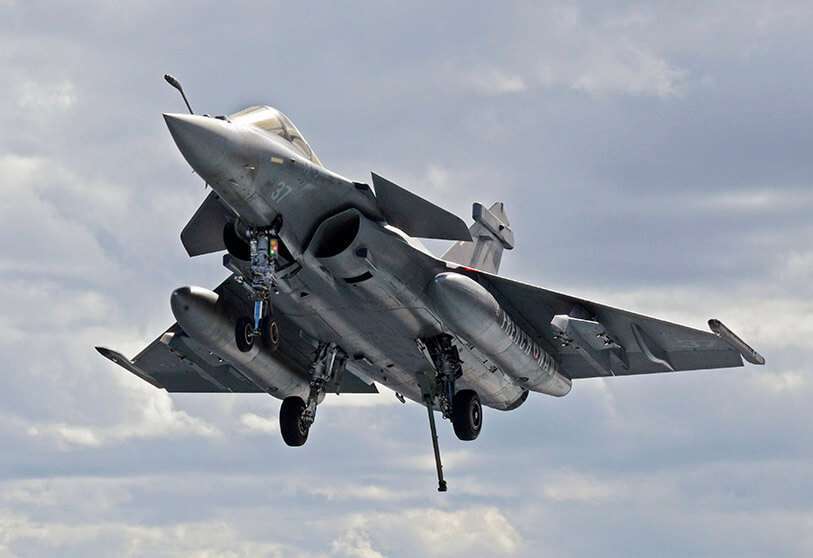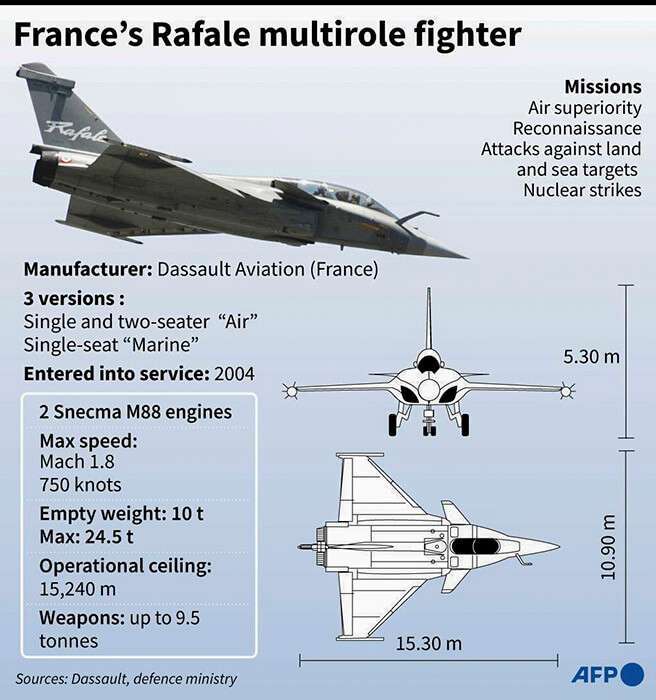France and Egypt secretly sign new arms agreement

France concluded three arms deals with Egypt on Tuesday. The first involves the sale of 30 Rafale fighter jets from Dassault for 3.75 billion euros, while the remaining agreements include the services of missile supplier MBDA and equipment distributor Safran Electronics & Defence for 200 million euros.
Paris is hosting the Egyptian delegation to seal the deal on Tuesday, but representatives of the two states initialled the document on 26 April, according to the Disclose news portal. The agreement has been kept secret since then at the request of Egyptian President Abdel Fattah al-Sisi.

The Egyptian Ministry of Defence announced that the purchase would be financed through a loan to be repaid over the next 10 years. Paris has undertaken to extend a credit of approximately 85% of the total amount to Cairo. The French Treasury will undertake the transaction in partnership with Crédit Agricole, Société Générale, BNP and CIC despite Egypt's deep indebtedness.
Egypt has a fleet of US F-16 fighters and signed an agreement with Russia for the purchase of 24 SU-35 and 50 MiG-35 fighters, but the country's arms plans include seeking new suppliers and boosting military relations with various arms-producing states. Although Egypt's Ministry of State for Military Production has drawn up a plan to develop its own weapons materials.

Egypt's foreign policy has sought various sources of armaments in recent years and, as a result, it maintains military relations with different arms-manufacturing countries. However, Egypt's Ministry of State for Military Production has drawn up an integrated plan to develop the country's military manufacturing system, worth EGP 7.3 billion.
In the field of armaments, relations between France and Egypt have been smooth. France was Egypt's main arms supplier between 2013 and 2017. In fact, Egypt was the first state to buy Rafale fighter jets when Dassault began production in 2015 with the order of 24 aircraft. France then guaranteed 60% of the loan signed by Cairo to cover the cost of the contract.

Simultaneously with the agreement, National Assembly deputies Jacques Maire and Michelle Tabarot, from the ruling LREM party and the conservative Les Républicains party, have pushed a joint proposal to establish stricter parliamentary control over arms exports. The proposal includes the creation of a parliamentary commission to examine the nature of arms sales and the profile of those who receive them, but the Elysée's lack of transparency on the issue reflects Macron's position.
Six months have passed since French President Emanuel Macron welcomed his Egyptian counterpart Abdel Fattah al-Sisi to the Elysée Palace. Harsh criticism from human rights groups, journalists and NGOs did not sway Macron, who prepared a grand reception for al-Sisi. This included a ceremony at the Hôtel des Invalides monument and a state dinner at the Elysée Palace, as well as the awarding of the Grand Cross of the Legion of Honour.

Macron's recognition of the Egyptian leader paid off, as Dassault Aviation CEO Éric Trappier was received at Al-Sisi's residence in Paris and, just a month later, French Foreign Minister Jean-Yves Le Drian travelled to Cairo to meet his Egyptian counterpart.
The reasons that compel France to establish a future bilateral relationship with Egypt are varied. First and foremost, there is the complex situation in Libya, with the challenge of implementing a democratic transition. The role of both countries is to facilitate stability and expel all foreign forces intervening in the country, mostly from Turkey.

Macron aims to gain a presence in the Middle East, so he needs to develop his bilateral relations with the states present in the region and minimise the influence of Turkey, with which he has strong disagreements. The exchange of accusations with Erdogan in the wake of the Islamist attacks has driven a wedge between the two.
The feud with Turkey prompted France's latest arms sale. Greece bought 18 Rafale fighter jets to protect its interests in the eastern Mediterranean, the open front with the Ottoman state. The final front underpinning Paris-Cairo cooperation is their joint engagement in the fight against jihadist terrorism.








